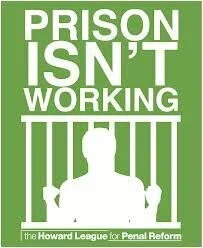The virus is not going to disappear any time soon. This means, we are eventually going to have to start finding ways to deal with it that are not draconian. The widespread availability of safe and effective vaccines makes it not only possible for us to cope with the virus in the way we cope with the flu, but dictates that the emergency measures which have been implemented to deal with it must also come to an end
Read Morethe first question that must be addressed is whether the technology is actually going to reduce harm caused by police chases. The chase must presumably have to start. There must still have to be a police policy dealing with the circumstances in which chases will be commenced, even if they are intended to be relatively short because this technology will be available.
Overseas discussions of this issue make reference to avoiding problems with other vehicles by implementing technology in all cars which enables each car to react to the presence of another vehicle.
This then brings us to serious other issues connected with this type of technology. Those issues relate to the fundamental rights of privacy and freedom of movement.
We start off by expressing our dismay at the government’s policy reversal since the position that it took when in opposition in 2014 in opposing legislation introduced by the Newman government which followed similar erroneous principles.
Read Morewe reiterate that a solution to the issue of driver distraction is not capable of resolution via the use of artificial intelligence to detect offences. On the terms of the amended primary legislation, this simply means that the power to enforce law becomes easier and automated. An increased ease by which law may be enforced is not a legitimate means to addressing the issue of distracted drivers
Read MoreThe QCCL supports a statutory tort for the invasion of privacy as a means for people to take their own action to protect their privacy in cases where the statutory regime and the common law do not apply or do not provide adequate protection.
Read MoreWe submitted that the law should reflect the proposition that in determining whether or not an accused’s belief that a person was consenting was reasonable, the jury should be able to take into account whether the accused was aware of circumstances which would lead a reasonable person to inquire further into the issue of consent. So that if the circumstances known to the accused were such that a reasonable person would not or might not take further steps to ascertain consent, then the accused will not be required to take any further steps either.
Read MoreThe extraordinary powers, even though they may be justifiable, demand immediate accountability.
Emergency measures do not justify less scrutiny. In fact, the opposite is the case, we need to be even more alert to the threats to our basic liberties. In our submission that should be a key focus of this committee.
There is a difference between how our Criminal Code deals with the defence of mistake and how the Common Law deals with it. At common-law, a person will succeed in a defence of mistake of fact, if they held the belief in the mistaken fact honestly. However, under the Queensland Criminal Code the mistake of fact defence can only succeed when a person not only honestly has made a mistake, but their belief is reasonable.
Once again, public commentary on this issue seems to ignore the fact that Queensland law already provides for a mixture of subjective and objective factors in assessing whether or not the accused has made a mistake of fact. In particular, in our review of the law we found no support for the view that “reckless indifference” would ever be consistent with the reasonableness requirement in the Criminal Code
We can accept that there is a case, as there is in relation to churches, that such spaces are kept exclusively for the believers. Though it is our view, that the draft bill needs to be amended to make it clear that it is restricted to facilities dedicated to such spiritual purposes. Again, it is our position, that should the religious body make these facilities available on a commercial basis, they lose the right to avail selves of this exception. We also make the comment, that it is not clear to us why this is not covered by clause 36.
Read MoreRestrictions on electoral expenditure are akin to the rules of debate in a meeting which restrict the length of speeches and provide for rights of reply. This feature of expenditure caps makes them more acceptable than donation bans or caps.
Read MoreReligious worship is essential to most people's lives. This is true for non-believers as well as believers once we recognise that freedom of religious worship includes the freedom not to worship.
Once we accept that proposition the only generally acceptable basis for freedom of worship is equal freedom for everybody. Each person when considering their own claim to be able to worship freely, would reject a proposal that gave them less freedom to do so then another person.
Religious belief is primarily a matter of individual conscience. However, freedom of religion also encompasses the freedom to manifest one’s belief in community with others and in public. This is because witness in words and deeds is bound up with the existence of religious convictions.
The necessity for the reform of the law of bail contained in this Bill is made clear by the statistics that 80% of children in detention are on remand and only 16 percent of young people on remand go on to receive a custodial sentence and therefore the vast majority of them are spending unnecessary time in detention.
Read MoreIn other words, having regard to the unbearable pain and suffering of those with terminal or incurable illnesses a well-informed person could not reasonably reject VAD so long as it was only permitted in circumstances where all reasonable steps had been taken to protect the interests of the vulnerable
Read MoreDomestic and family violence is an ongoing scourge in our community. We do not think it necessary to repeat what is already well-known about the level of family and domestic violence and the harm that it does. These statistics are in any event, well summarised in the discussion paper.
However from a Civil Liberties point of view whilst the prevention of harm is a necessary condition for government to take action it is not a sufficient condition.
ln taking action to protect members of the community from harm, the state has to have regard to the
rights and liberties of other individuals. ln particular, before interfering with the rights and liberties of others it is that fundamental that the State demonstrates that the proposed measure will be effective at protecting the members of the community it is intended to protect.
It is extremely alarming that some parts of our government seem to think they should be protected from scrutiny by the elected representatives of the people of the country. This is an anathema to any Democrat.
Read MoreThe QCCL unreservedly condemns all forms of racial vilification and discrimination. However in the Council’s view, it is another thing to make the expression of such views illegal
Read MoreThe right to free speech and the right to a fair trial are two of the most cherished values in a civilised society. However, they can and do come into conflict. Traditionally under our legal system this conflict has been resolved by effectively prohibiting the disclosure of allegations against a person until they have reached a stage where there is sufficient evidence to support a charge. At that point limited publicity is permitted. And then full publicity occurs at the time of trial. We support that traditional arrangement. Two reasons are traditionally given for this approach. The first is to protect the reputation of persons. Secondly to protect their right to a fair trial.
Read MoreThe Council’s clear and oft-stated preference is for the government to legalise cannabis without any restrictions
Read MoreIn the Council’s view the case for a Human Rights Act is quite simply irrefutable. In saying that the Council does not think that a Human Rights Act will constitute a revolution in either sense. That is, a Human Rights Act will not create a human rights nirvana in Queensland. Nor will it wreck the separation of powers between the branches of the government or destroy our democracy. What it will do is represent a bold statement of commitment by the Queensland Government to bring human rights closer to the heart of political culture in this state and provide a place where the marginalised and disadvantaged in our community can seek redress for their grievances.
Read MoreIn our submission, the process contemplated under this legislation is extremely bureaucratic and process driven. The focus of the legislation should be the treatment of ill people. In California, you can see a doctor and walk out of the pharmacy the same day with a prescription. Why can we not have that system in this country?
Read More


















